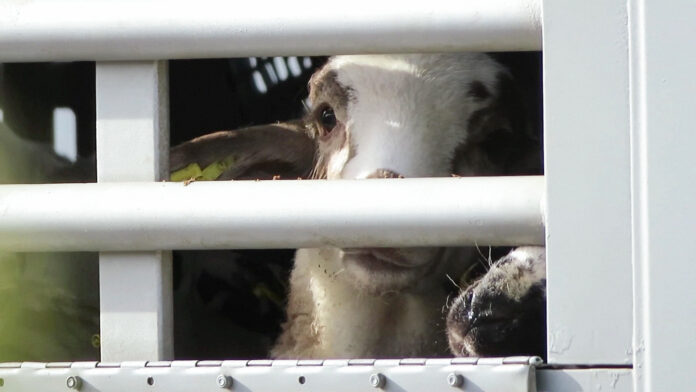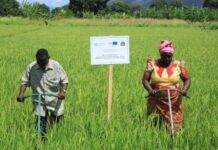The Southern African Faith Communities’ Environment Institute (SAFCEI) Board – made up of Christian, Muslim, Hindu and Braham Kumari faiths – express shock and horror at seeing the terrible conditions that 19,000 cattle are suffering on the Kuwaiti ship in Cape Town harbour which is enroute to Iraq. The stench from the ship – which has polluted much of Cape Town – tells the story of the level of suffering and abuse suffered by the confined animals on the ship. Reports from the NSPCA state that some of the cows were found dead among the living, and a number of them needed to be euthanised.
Chairperson of the SAFCEI Board, Dr. Braam Hanekom, says “This raises the question we have been asking for so long about the specific farming methods that we see around us and also the related value chain of how things are conducted. We ask for an in-depth investigation by the Department of Agriculture and Commerce. We ask that the government takes immediate action in line with the current legislation.”
The multi-faith environmental justice organization says that the sanctity of all creation should not be separate from our actions and governance as South Africans. Our policy decisions should not allow abuse of innocent farmed animals solely for the benefit of humankind. All of our faith texts call for our care and compassion for other living creatures, and such a practice of live transport for slaughter should never be done.
Former SAFCEI board member and First Deputy President of the Muslim Judicial Council, Shuaib Appleby, is proposing a fatwa on farmed animals being transported in this manner.
Board Director of SAFCEI, Salieg Isaacs, says “We are calling for an in-depth investigation into allowing this practice, and a review of South Africa’s Animal Health Act (7) from 2002 which is overdue for a review. This ship needed a transit permit in order to dock at Cape Town harbour and the national executive officer has wide discretion to provide such permit and animals’ health should be a determining factor to providing the permit. The Animal Health Act should be amended to specifically disallow the transit of animals through SA in conditions which are harmful to their health.”
Furthermore, under the Animal Protection Act (1962), the ship’s owners are clearly subjecting the animals to unnecessary suffering, which is a criminal offence. It is also likely to be a contravention of other areas in the Act.
SAFCEI Executive Director, Francesca de Gasparis, says “We call on the South African government to take immediate action to stop this inhumane and immensely cruel and unethical treatment of farmed animals, and to ensure effective application of laws for the betterment of all.”









